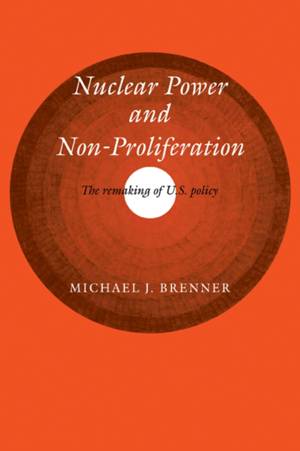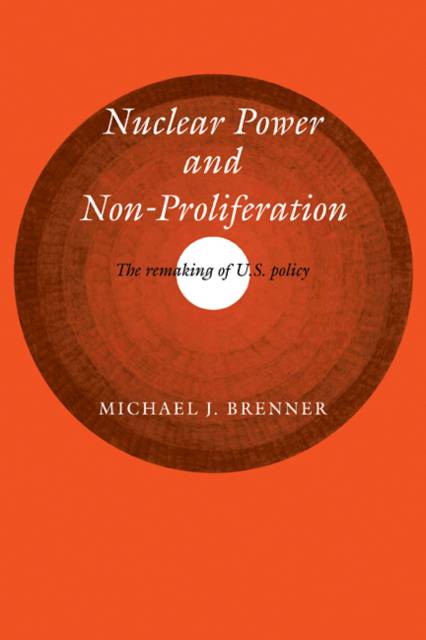
- Afhalen na 1 uur in een winkel met voorraad
- Gratis thuislevering in België vanaf € 30
- Ruim aanbod met 7 miljoen producten
- Afhalen na 1 uur in een winkel met voorraad
- Gratis thuislevering in België vanaf € 30
- Ruim aanbod met 7 miljoen producten
Zoeken
Nuclear Power and Non-Proliferation
The Remaking of U.S. Policy
Michael J Brenner
Paperback | Engels
€ 60,95
+ 121 punten
Omschrijving
In this volume, Professor Brenner recounts how the United States dealt with the problem of nuclear proliferation in the period from 1974 to 1981 when this book was first published. The year 1974 is critical because of three highly coincidental events: India's explosion of a bomb; an upsurge in the demand for nuclear energy triggered by the oil crisis; and the commercialisation of fuel-producing technologies that could be used for weapons purposes. Nuclear Power and Non-Proliferation is at once a narrative account of how nuclear policy was made at the highest levels of the American government and a critical assessment of those policies. Professor Brenner places the chronicle of how policy is shaped within the context of interagency and legislative politics, as well as within the larger context of international conflicts concerning access to and control of nuclear power. The author locates the proliferation problem historically, emphasising the dual personality of atomic power and noting the tendency of military and civilian programmes to diverge steadily until the events of 1974 forced an attempt to bring them into single focus.
Specificaties
Betrokkenen
- Auteur(s):
- Uitgeverij:
Inhoud
- Aantal bladzijden:
- 340
- Taal:
- Engels
Eigenschappen
- Productcode (EAN):
- 9780521104654
- Verschijningsdatum:
- 19/03/2009
- Uitvoering:
- Paperback
- Formaat:
- Trade paperback (VS)
- Afmetingen:
- 152 mm x 229 mm
- Gewicht:
- 498 g

Alleen bij Standaard Boekhandel
+ 121 punten op je klantenkaart van Standaard Boekhandel
Beoordelingen
We publiceren alleen reviews die voldoen aan de voorwaarden voor reviews. Bekijk onze voorwaarden voor reviews.











